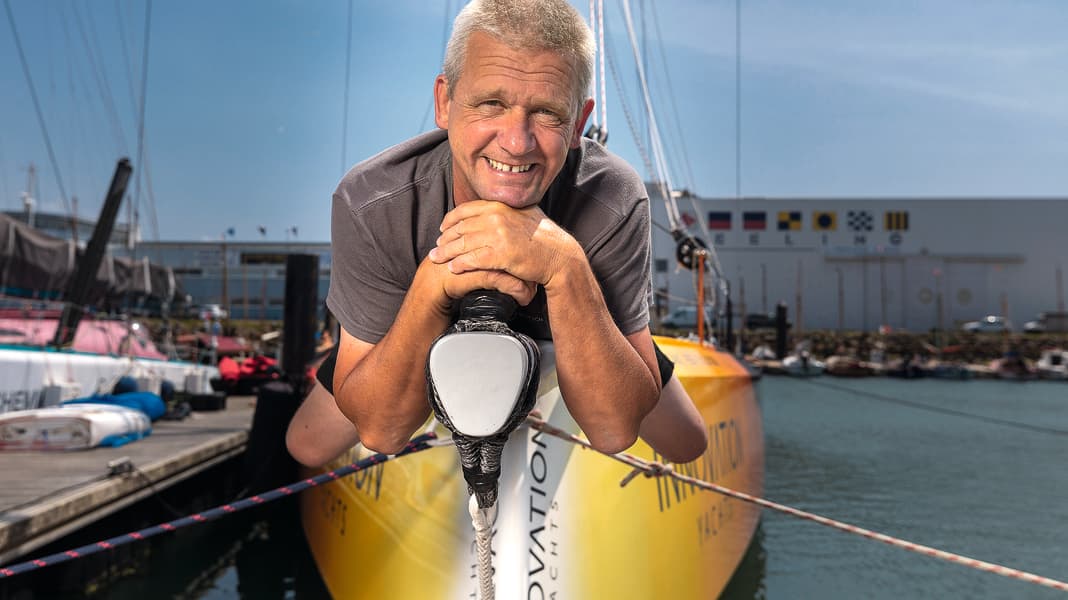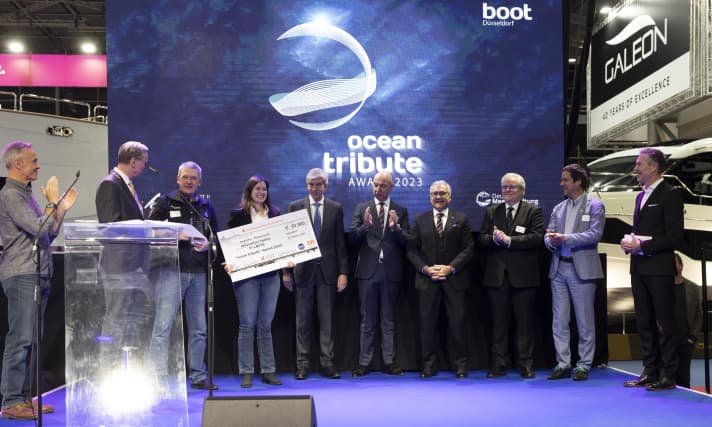
With the Catamaran IY LBV35 The company impressed the expert jury with its new trampoline, which is designed to be completely recyclable: it is the first model in the new series to be powered entirely by solar energy and electricity generated by hydrogen generators. As an optional extra, the trampoline can be lowered to collect rubbish floating in the sea.
The shipyard also wants to guarantee its customers the repurchase of all building materials such as volcanic fibre, balsa wood (FSC) and biological epoxy resin in the event of damage or at the end of the product life cycle. The prize money will be used to continue the development work that has already begun.
Norbert Sedlacek has been researching the field of innovative boat building for a long time: he has already made several attempts to sail a record non-stop trip with an Open 60 built from volcanic fibre, but has had to abandon every attempt so far.

The Ocean Tribute Award has been presented at the Düsseldorf trade fair for products, projects and innovations relating to marine conservation since 2018. The Prince Albert II. Foundation, boot Düsseldorf and the German Ocean Foundation support people, institutions, associations and research organisations in their efforts and award the prize, which is endowed with 20,000 euros.
In 2019, for example, Boris Herrmann's "Malizia Ocean Challenge" initiative received the award. Last year, it went to the Helio Rec team from France, which developed electric charging stations for the maritime sector based on floating solar power plants.
In addition to Innovation Yachts, four other projects were nominated for this year's award:
Enteron
Enteron is a certified wastewater treatment plant for houseboats, sailing and motor yachts, but also for large expedition vessels. The system treats waste water directly on board. The technology is designed to ensure that only clear, clean water is released back into the environment. The founder and contact person is Thomas Logisch, who specialises in equipment for blue water yachts.
Clean Sea Pod
It is a kind of rubbish bin on the ocean. The aim is to set a new standard in the recovery and disposal of so-called ghost nets. They are to be realised with a technology that is simple and can be implemented on all ocean-going yachts - without increasing the CO2 footprint. The team is working together with various universities and research institutes in Canada and the USA.
Save Nemo / NemoPI
The project team has developed an open-source underwater weather station that collects various chemical and physical data on marine pollution and analyses it in a cloud. The data is publicly available. The intelligent hardware and software has been combined with moorings to put a stop to anchoring in reefs. The aim is to reduce the increase in water pollution.
Fregata Space / Water Need Heroes
The technology-based start-up has developed an earth observation platform to automatically detect air and water pollution anywhere in the world. The images come from various sources such as satellites, drones, aeroplanes and cameras. The company was founded with the aim of using the latest technology and satellite capabilities as well as machine learning for technology that helps to clean and preserve the planet.
